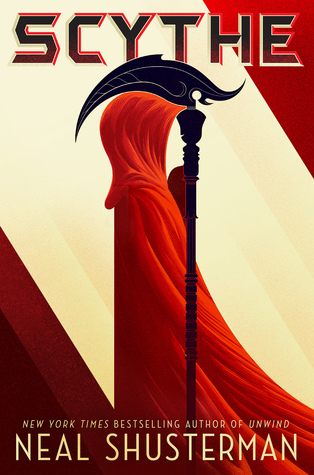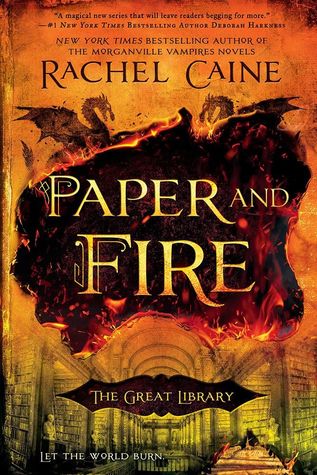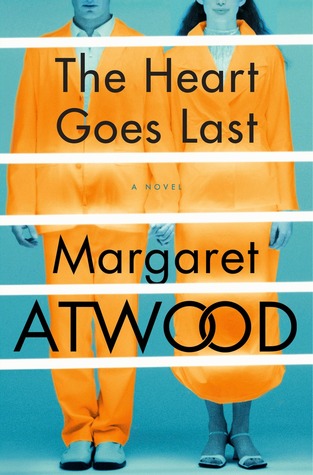*Gilded Cage by Vic James is available Tuesday, February 14th!*
I am so excited to finally share this review of Gilded Cage with all of you! I've had this galley since October of last year and it feels as though it has taken ages for the release date to finally get here. But the wait is finally over, so let me tell you about this awesome book.
Much like I stated in my review of Scythe by Neil Shusterman, I've been pretty burnt out on dystopians for a while now, but I decided to take a chance on Gilded Cage because of how interesting it sounded, as well as the many positive reviews I had seen. (I actually read Gilded Cage before Scythe, which is part of why I even decided to give Scythe a chance in the first place.)
Gilded Cage takes place in an alternate modern-day England where there is a divide between the Skilled and un-Skilled, aka those who can perform what we might call 'magic' and those who cannot. (I also found it interested how Skill is indeed believed to be something genetic, rather than 'random' chance) All of those born without skill must participate in ten years of 'slavedays' at some point in their life, which is what sets Gilded Cage in motion as the Hadley family decide to begin their slavedays.
Gilded Cage is definitely action-packed and will absolutely keep you turning the pages. There are some intense, dramatic moments that will definitely shock you, and I felt that there was a fairly good mix of heavy, darker content, and content meant to maintain a lighter tone so as not to drag down the entire story, as it's not exactly a lighthearted plot. I absolutely understand why this book has received so many good reviews and is poised to become a huge success for YA dystopians.
This was one of those books that really played with the notion of good and bad and had fun with the grey area in which one must ask - is there an in-between? There are characters that seems solely bad, some that seem good, and some that are hard to classify.
The worldbuilding was done really well. I particularly liked that international politics were a part of the many discussions, as well as the fact that we are given brief tidbits regarding the notion that there are other countries in this world that do not function in the same manner as the country in which our main characters live. Most dystopians usually seem to focus on only one particular continent and completely ignore the rest of the planet, so it was nice to see that there are different things gong on in this world. The only downside I had in regards to the worldbuilding and background information in Gilded Cage was the immense amount of info-dumping that we get throughout the entire story, but particular in the first half. The story would be progressing swimmingly, and then I would suddenly discover that I was starting to zone, and I realized that it was because all I was being given were political backgrounds, historical information, etc. While this is useful to the story, it was done in such large chunks and so often that it became tedious and hard to even remember all of it; I'm not sure if all of it was crucial to the story itself.
Gilded Cage provides more than a few character POVs, which was surprisingly helpful in understanding the lives of both the Skilled and those who are living as slaves. What is most interesting to understand is that although each character undergoes different extremes of types of obstacles, they do all suffer in one way or another, and that aspect brought a lot of depth to the novel. Abi and Luke both have starkly different roles as slaves, and I though James developed both characters extremely well. Abi is a smart girl, and despite the mistakes she makes or any poor judgments she might have, she's not someone to underestimate. Luke, similarly, is not someone to think you can just bowl over. He starts out as a rather mild-mannered character, but he soon learns that his current situation is wrong and he begins to want to branch out and take a stand for his beliefs. Of course, that never works out well in dystopians, but it was exciting to see the changes occur throughout Luke's progression in the story.
The 'high class' Skilled POVs that we get to experience were also quite interesting, and fortunately were all rather distinct. I loved the divergence in personalities among the Skilled, particularly how some were still relatively 'normal' and down to earth, whereas others were ready to take their power roles and use their Skill to their advantage. One thing I did notice, however, that all of our POVs were white characters - unless I overlooked some details - which does seem a bit unfortunate. I think adding in the element of race would have added even more depth to this story - for instance, would race play a factor in the role of any of these character? It's just another element that would be useful to add, and would probably add in some more realism.
The main issue I would say I had with this book was my confusion around slavedays. I think it's somewhat odd that people can choose when to do their slavedays. The younger you do them, I think the more beneficial it is for you, but then if you screw up while doing them, you could get stuck in there for life, whereas if you had completed them when you're in your sixties, it wouldn't be as long if that happened. But then, hard work in late age is definitely harder, so... I'm not sure. The concept was really hard for me to fully accept as realistic, but I was able to accept it enough to enjoy the story and disregard my questioning of the system.
And one other tiny issue I had was the minor bit of romance. Was it really necessary? I know it sets up more plot and intrigue and allows for more drama to ensure in this book and forthcoming novels, but it was just... odd. I really don't think it was necessary, and quite frankly, do you really think crushing on someone would be at the forefront of your mind when you're working as a slave and you have no idea what could be happening to some of your family members? Personally, I wouldn't think so, but maybe it's a nice distraction.
Overall, I am giving Gilded Cage four stars for all of the reasons stated above! I would recommend this to anyone who loves or has enjoyed dystopians in the past, or anyone who enjoys a unique world system and action-packed excitement.
You might also like:
Scythe by Neal Shusterman
The Secret Keepers by Trenton Lee Stewart
Paper and Fire by Rachel Caine





